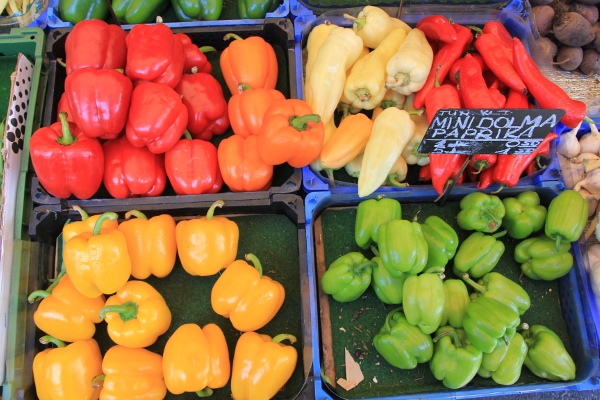5 Tips for Choosing Organic Food

Visit the original source at One Green Planet
The growth of the organic food market has been steadily increasing over the last two decades. According to the Organic Trade Association, sales of organic food and beverages have grown from $1 billion in 1990 to $26.7 billion in 2010. Among all organic food sold last year, the highest sales growth was organic fruits and vegetables, up 11.8 percent from the previous year. While the demand for organic food continues to increase, many individuals wonder if choosing organic is indeed better for their health, environment, and economy compared to choosing conventional-particularly as organic food often carries a higher price tag.
Organic Food Defined
In 2002, the United States Department of Agriculture (USDA) established an organic certification program to help regulate how organically-labeled food would be grown and processed. Under the USDA's National Organic Program (NOP), organic food must be grown and processed using farming methods that recycle resources and promote biodiversity. The USDA defines the term organic stating: "Organic crops are raised without using most conventional pesticides, petroleum-based fertilizers, or sewage sludge-based fertilizers. Animals raised on an organic operation must be fed organic feed and given access to the outdoors. They are given no antibiotics or growth hormones. The NOP regulations prohibit the use of genetic engineering, ionizing radiation, and sewage sludge in organic production and handling."
When it comes to packaged foods, products labeled organic must contain at least 95 percent organic ingredients, while those labeled 100 percent organic must contain only organically-produced ingredients. Food labels that state "made with organic ingredients" must contain at least 70 percent organic ingredients.
Benefits of Choosing Organic Food
Much conflict exists over whether or not organic food is better for our bodies compared to conventional food. When it comes to packaged foods, an organic label helps ensure that products do not contain artificial colors, flavors, preservatives, and additives-ingredients our bodies can certainly do without. Research has also shown that organically-grown whole foods like fruits and vegetables contain higher levels of certain vitamins and minerals including vitamin C, iron, magnesium, and phosphorous. However, researchers cannot seem to agree whether the nutrient differences between organically- or conventionally-grown foods are significant and if those increases translate into measurable health benefits. For now, it is up to the consumer to decide.
This story was submitted by One Green Planet. One Green Planet is your online guide to making conscious choices that help people, animals and the planet. To learn more, visit the site, subscribe to the feed and join their growing community on Facebook, Twitter and Pinterest

